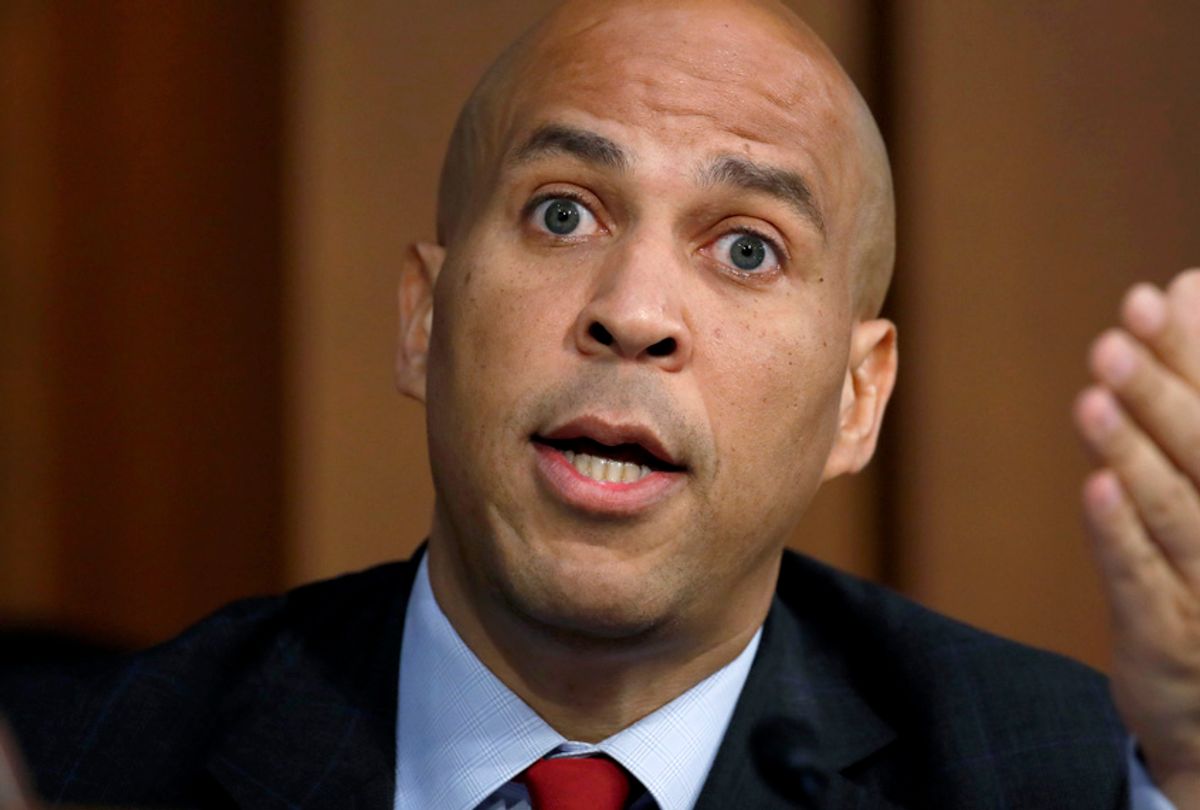Sen. Cory Booker, D-N.J., who recently announced he will run for president in 2020, has re-introduced a bill to legalize marijuana nationwide and expunge past marijuana convictions. His legislation immediately attracted the support of four of his challengers for the 2020 Democratic nomination, a sign of how far and how rapidly the party has shifted on this issue..
Booker’s Marijuana Justice Act, which was first introduced in 2017, will be co-sponsored by Sen. Elizabeth Warren of Massachusetts, Sen. Kamala Harris of California, Sen. Bernie Sanders of Vermont and Sen. Kirsten Gillibrand of New York, the Washington Post reported. Another co-sponsor is Sen. Michael Bennet, D-Colo., who is also considering a 2020 bid.
“It’s not enough to simply decriminalize marijuana,” Booker said in a statement announcing the bill. “We must expunge the records of those who have served their time. The end we seek is not just legalization, it’s justice.”
If any of the candidates win the Democratic nomination, they will become the first major party candidate to endorse the full nationwide legalization of marijuana. Sanders supported decriminalizing marijuana in 2016 but stopped short of calling for full legalization. Democrats changed their platform to call for decriminalization of marijuana later that year. While decriminalization would eliminate criminal penalties for marijuana possession, legalization would allow adults buy the drug legally in licensed retail stores, as is now the case in 10 states and Washington, D.C.
“Hundreds of thousands of people are arrested for possession of marijuana every single year,” Sanders said in the statement announcing the bill. “We must end the absurd situation of marijuana being listed as a Schedule 1 drug alongside heroin. It is time to decriminalize marijuana, expunge past marijuana convictions and end the failed war on drugs.”
Warren and Harris both opposed legalization in the past. Warren said in 2012 that she opposed legalization, CNN reported, while Harris opposed a ballot initiative that would have legalized recreational marijuana in California in 2010 when she was the state’s attorney general.
The changes in Democrats’ attitudes reflect those of the general public. A 2018 Gallup poll found that 66 percent of Americans now support legalizing marijuana, compared to just 44 percent in 2010 and 31 percent in 2000.
Booker's bill goes beyond legalizing marijuana and expunging convictions. It would also create a “community reinvestment fund” to provide grants and job training aimed at helping people transition from prison to the community.
"The War on Drugs has not been a war on drugs, it's been a war on people, and disproportionately people of color and low-income individuals," Booker said in the statement. "The Marijuana Justice Act seeks to reverse decades of this unfair, unjust, and failed policy.”
The bill is not likely to get a vote in the Republican-controlled Senate, but may get hearings in the House where Reps. Barbara Lee and Ro Khanna, both California Democrats, have introduced Booker’s bill.
“I’m proud to sponsor legislation that would legalize marijuana at the federal level, address the disproportionate impact of prohibition on people of color by expunging criminal convictions, and promote equitable participation in the legal marijuana industry,” Lee said in a statement.
“This shows that public opinion is shifting in this country to recognize that legalizing marijuana is a racial justice issue, an issue for helping make progress on the opioid crisis, and an economic issue of creating jobs,” Khanna said.



Shares